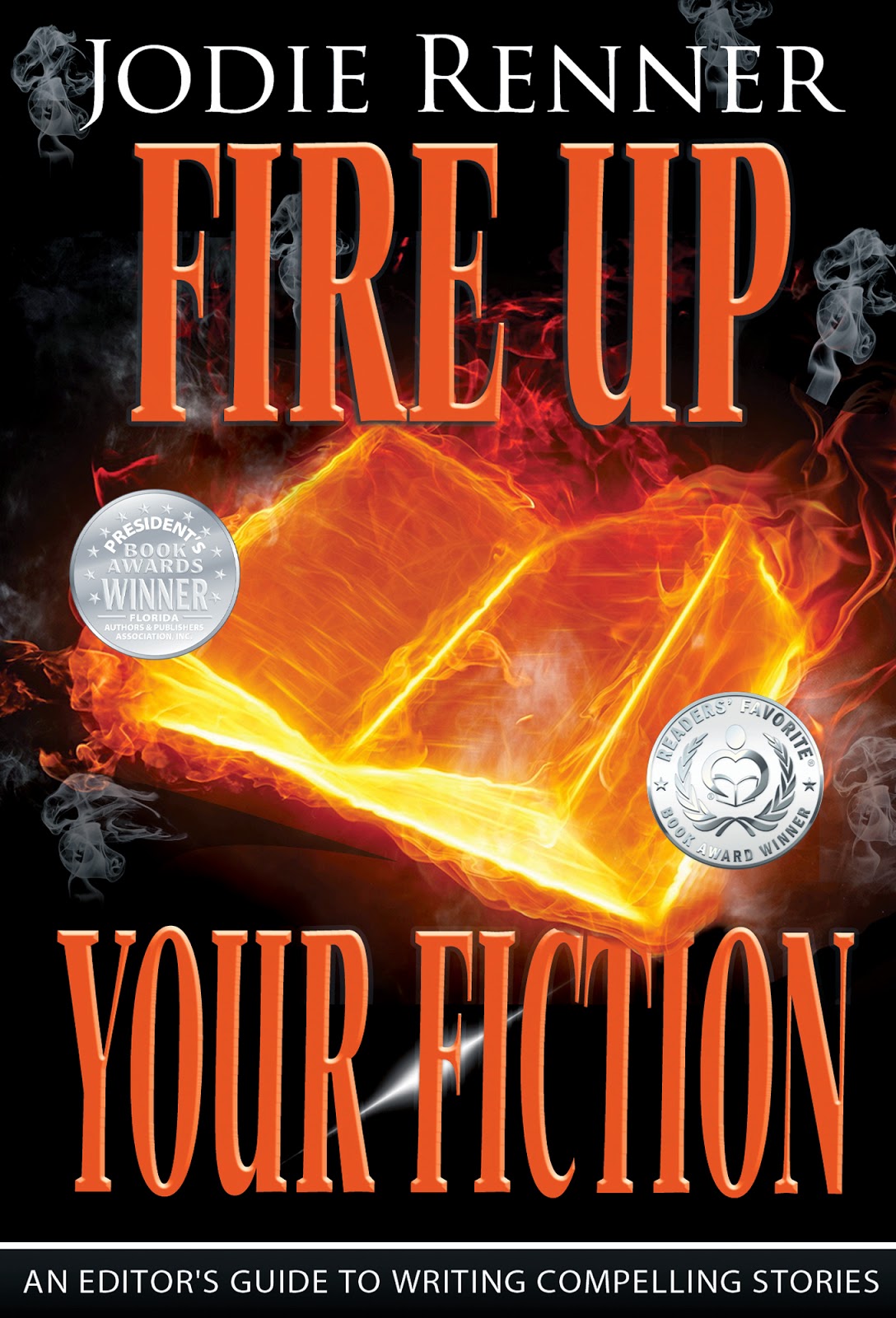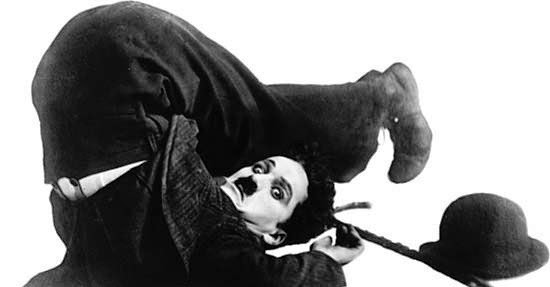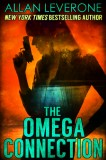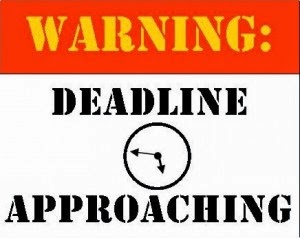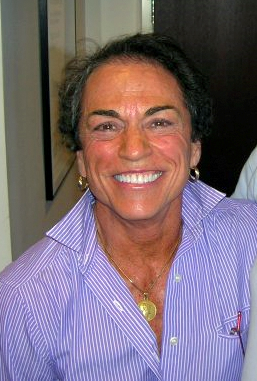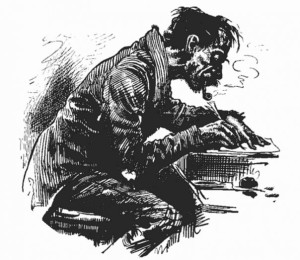Monthly Archives: January 2015
Reader Friday: Raise Your Sail
How to Reach More Readers with Your Writing
15 Tips for Clear, Concise, Powerful Writing
by Jodie Renner, editor & author @JodieRennerEd
Today’s tips, a last-minute fill-in here, come from the handout for a talk I gave to a local writing group whose members were very divergent in their writing projects. These succinct pointers apply to blog posts, magazine articles, and nonfiction writing, as well as fiction writing.
When revising your work, keep these 15 tips handy to help you clarify and strengthen your message and keep your readers engaged.
1. Write in a clear, casual, friendly accessible style. Avoid formal or stiff writing. Pretend you are talking to people you know and like. Let your personality and warmth show through.
2. Grab the reader’s attention at the beginning with a compelling statement, question, scene, or example.
3. Avoid formal sentences and pretentious language. Rather than impressing your readers, ornate, fancy words can just end up alienating them. Don’t send your readers away from your story to look up a word. Fancy, erudite, or pompous words are show-offy and frustrating. Besides, immediately recognizable words make for instant comprehension and keep the pace going and the reader turning the pages. But look for the strongest, most evocative word for the situation.
4. Don’t confuse, annoy, or bore your readers with unclear or vague writing. Avoid generalities and vague terms like “things,” “food,” “people” and “animals.” Use specific examples and sensory imagery to paint a clear picture and bring your ideas to life.
5. Vary your sentence structure and the lengths of your sentences. Avoid starting several sentences in a row with He or She or the person’s name. Break up long, convoluted sentences.
6. Write lean. Make every word count. Take out all unnecessary and repetitive words and sentences and go for an easy flow of ideas. Avoid repeating ideas and watch for those little words that just clutter up your sentences. Take out “It was,” “There was,” and “that” wherever they’re not needed.
7. Take out wishy-washy qualifiers like quite, sort of, almost, kind of, a bit, pretty, somewhat, rather, usually, basically, generally, probably, mostly, really, etc. Forget “He was quite brave,” or “She was pretty intelligent” or “It was almost scary.” These qualifiers dilute your message, reduce the impact, and make the imagery weaker. Take them out. Even very is to be avoided – it’s like you’re saying the word after it needs reinforcing. “She was beautiful” packs more punch than “She was very beautiful.”
8. Keep adverbs to a minimum. Instead of propping up a boring, anemic verb with an adverb, look for strong, descriptive, powerful verbs. Instead of “He walked slowly” go for “He plodded” or “He trudged” or “He dawdled.” Instead of “She ate hungrily” say “She devoured the bag of chips,” or “She wolfed down the pizza.” Instead of “They talked quickly,” say “They babbled.”
9. Avoid colorless, overused verbs like walked, ran, went, saw, talked, ate, did, got, put, took. Get out your thesaurus (or use the MS Word one. Hint: look up the present tense: walk, run, eat, say, etc.) to find more expressive, powerful verbs instead, like crept, loped, stumbled, stomped, glimpsed, noticed, observed, witnessed, spied, grunted, whimpered, devoured, consumed, gobbled, wolfed, munched, or bolted.
10. Avoid –ing verbs wherever possible. Use -ed verbs instead – they’re stronger and more immediate. “He was racing” is weaker than “He raced.” “They searched the house” is more immediate than “They were searching the house.” Rewrite -ing verbs whenever you can, and you’ll strengthen your writing and increase its power. But keep -ing verbs for ongoing action that was going on while something else occurred: The phone rang while he was washing his car.
11. Use adjectives sparingly and consciously. Instead of stringing a bunch of adjectives in front of an ordinary, overused noun, find a more precise, expressive noun to show rather than tell. Overuse of adjectives can also turn your writing into “purple prose” that is melodramatic and overly “flowery.”
12. Avoid the passive voice. For greater impact, when describing an action, start with the doer, then describe what he did, rather than the other way around. Use the more direct active voice wherever possible. Instead of “The house was taped off by the police,” write “The police taped off the house.” Also, avoid empty phrases like “There is”, “There was,” “It’s,” and “It was.” Jump right in with what you’re actually talking about.
13. Avoid negative constructions wherever possible – they can be confusing to the reader. Instead of “I didn’t disagree with him,” say “I agreed with him.”
14. Read your pages out loud to make sure the ideas flow naturally. Wherever you stumble or have to reread, your readers will, too.
15. Pay attention to white space. A solid wall of words for a whole page can make readers anxious, especially reluctant readers. Use frequent paragraphing. For nonfiction and blog posts, use bolded subheadings and lists wherever appropriate.
Do you have any other good tips to keep in mind for the revision stage, especially for blog posts and magazine articles? If so, please share them in the comments below. Thanks!
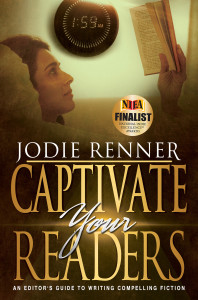 Jodie Renner is a freelance editor and the award-winning author of three craft-of-writing guides in her series An Editor’s Guide to Writing Compelling Fiction: Fire up Your Fiction, Writing a Killer Thriller, and Captivate Your Readers. She has also published two clickable time-saving e-resources, Quick Clicks: Spelling List and Quick Clicks: Word Usage. You can find Jodie at www.JodieRenner.com, www.JodieRennerEditing.com, and on Facebook and Twitter.
Jodie Renner is a freelance editor and the award-winning author of three craft-of-writing guides in her series An Editor’s Guide to Writing Compelling Fiction: Fire up Your Fiction, Writing a Killer Thriller, and Captivate Your Readers. She has also published two clickable time-saving e-resources, Quick Clicks: Spelling List and Quick Clicks: Word Usage. You can find Jodie at www.JodieRenner.com, www.JodieRennerEditing.com, and on Facebook and Twitter.Theme Through Intent
Recently, I spoke at a local book club. The readers posed interesting questions about my life as a writer, but I also learned a few things from them. For example, the special needs teacher said her students are “unable to visualize movies in their head” like we do when we read. This deviance stems from all the visual images presented to us through TV, movies, video games and such. These young people haven’t developed the ability to imagine beyond the words on the page.
This statement took me aback. I understand that not everyone likes reading fiction, and it’s a gift when words on a page transport you to another place in your mind, but I never realized some people can’t see beyond the actual words themselves. If this deficit is allowed to grow, we’ll lose generations of readers to literal translation.
Another book club member, an English teacher, had this to say:
“On our tests, students are given a passage to read and then asked to explain the author’s intent. I once asked an author if they knew the theme of their story before they wrote it, and their answer was no. They write the story as it comes. How about you?”
“My intent is to entertain,” I said. “That’s it. I want to give my readers a few hours of escape from their mundane routine and all the bad news out there. My goal is to write a fast-paced story that captures their attention.”
And this is true. I’ve had a writer friend who is a literature professor look at my work and find all sorts of symbolism. Excuse me? I had no idea it was there. Must have been subconscious. I do not set out to sprinkle meaningful symbols related to a theme into my story content. I just write the book.
However, I do know what life lesson my main character has to learn by the end of the story. This is essential for character growth and makes your fictional people seem more real. Usually, I include this emotional realization in my synopsis or plotting notes. It doesn’t always turn out the way I’d planned. Sometimes, this insight evolves differently as I write the story. Or maybe a secondary character has a lesson to learn this time around.
For example, in the book I just finished, I have a couple of paragraphs in my notes under the heading, “What does Marla learn?” Now maybe these lessons could be construed as the book’s theme, but I did not consult these going forward to write the story. To be so analytical would have stopped me dead. Fine arts grad students can pay attention to these details, but I have to write the book as it unfolds. So did I meet the intent that I’d originally set out for my character? Yes, in some respects I covered those points. But do they constitute the main theme of my work? Only my readers will be able to tell me the answer to that question. I can’t see it for myself.
How about you? Do you deliberately devise a theme and the symbolism to support it before writing the story, or does it evolve from the storytelling itself? How do you even tell if a theme is present? Or is it the same as the life lesson learned by one of the characters?
Note: I have a Contest going to celebrate the release of Hair Raiser, #2 in the Bad Hair Day Mysteries. This title had been originally published by Kensington and is now available in a revised and updated Author’s Edition. Enter to win a signed hardcover copy of Shear Murder and a $10 Starbucks gift card. http://nancyjcohen.com/fun-stuff/contest
Splat!
By PJ Parrish
Good morning crime dogs,
This post is going to be extra short. Sunday evening, I went out for my usual run at the park. I took a bad spill and went down hard on the gravel path. Managed to roll so I am scraped up on only one side but I bopped my head pretty hard and ended up with a mild concussion. So I didn’t finish my looong post on “Making the Good Decisions that Will Make Your Book.” I promise to post it next time.
I am fine! Just sore and headachey. And feeling foolish but grateful I didn’t break any of my old bones. Now, if you will excuse me, I have to go lay down. So I will let my old friends The Blues Magoos stand in for me today. See you on the back stretch…
The best of times and the worst of times
by Allan Leverone @Allan Leverone
When I was very generously invited by Jodie Renner to share a post at The Kill Zone, my intention was to talk about career options for Indie writers. I was going to highlight my new novel, THE OMEGA CONNECTION, which had just been released by Kindle Press after being selected through the Kindle Scout program, and use it as an example of authors giving new opportunities a chance.
Well, the initial releases by Kindle Press have been delayed a couple of months, presumably because Amazon recognized the intense scrutiny those first Kindle Press releases will face, and they want to be certain each book is as polished and reader-ready as it can be.
I’m one hundred percent in favor of this.
However, that decision did leave a gigantic hole in my Kill Zone plans. So, instead of talking about options available to those who have already dedicated themselves to a writing career, I’ve decided to direct my post toward aspiring authors, and the whole “things are wonderful/things suck” debate that seems to be raging among Indies at the moment.
There’s never been a better time to be a writer.
It must be true, because more people than ever own e-readers.
It must be true, because reading as a pastime has been making a comeback over the past few years.
It must be true, because now, anyone with a story to tell and the self-discipline to pound it out on a keyboard can get that story out to the public, no agent or publisher necessary.
There’s never been a worse time to be a writer.
It must be true, because e-book sales have flattened out over the last year or so.
It must be true, because the glut of available material has made it increasingly difficult for new writers—traditionally published or Indie—to get their work noticed.
It must be true, because anyone with a story to tell and the self-discipline to pound it out on a keyboard can get that story out to the public, no ability or talent necessary.
So, which is it?
Is this the best of times or is this the worst of times? There are plenty of people on each side of the debate more than willing to hit you over the head with fact and opinion until you commit to their camp.
Here’s my take: it depends.
If you’re looking to throw some half-assed crap together, poorly written, unedited and formatted badly, stick a homemade cover on top of the whole mess and then wait for the cash to come rolling in, well, it might just be the worst of times for you.
There might have been a period when that was possible, way back in the prehistoric early days of the e-book/self-publishing phenomenon. But that train left the station a while ago, and hopefully it ran over you while it was pulling out. Readers are savvy, not stupid. They know what to look for and they’re not falling for amateurish junk cluttering up their e-reader.
Mostly.
Have all the charlatans disappeared? Of course not, and they never will. They spring up like poisonous mushrooms in every fast-growing industry, hucksters who think they’ve found a way to make a quick buck by circumventing hard work and offering an inferior product to a gullible public. These are the people who give Indie writers a bad name.
On the other hand, if you have some talent and a strong work ethic, if you approach writing as a craft as well as a job, if you’re willing to listen and learn and respond in a positive way to constructive criticism, this just might be the best of times.
I place myself firmly in the second camp. Am I making millions of dollars with my fiction? Hell, no. I’m nobody’s idea of an overnight success. But I am making money.
More importantly, I’m doing what I love and building an audience. With nine novels to my name and two more coming by April, I’m paying my dues, laying down a career foundation.
There’s nothing quick or easy about it.
But it’s extremely gratifying, and everything I was working toward when I was sending out dozens and dozens of agent queries over the course of several years. To no avail. Everything I was working toward when I attended Thrillerfest back in 2008 just so I could put myself through the torture chamber/learning opportunity that is Agentfest. Also to no avail.
For the record, I was never able to snag an agent, either through the query process or through the Agentfest meat market, or any other way.
But something happened along the way. I stopped actively seeking an agent years ago and now, as far as I’m concerned, the shoe is on the other foot. Any potential agent wishing to represent me would have to convince me of the value he or she could add to my career, not the other way around.
If you look at writing as some kind of get-rich-quick scheme, one where you can rake in lots of cash quickly, you’re probably considering the wrong profession, especially now. Not that it doesn’t happen, but it’s such a rare occurrence you can be virtually certain it isn’t going to happen for you.
You’ve got a better chance of getting struck by lightning. Twice.
On the other hand, if you start to feel a little…twitchy…when you go more than a day or two without writing, if you have the ability to tell stories and phrase things in interesting ways, if you are confident in that ability without being unrealistic in your expectations, if you recognize the value of hard work and you’re willing to take a chance on yourself while understanding there are no guarantees in this world, then by my estimation, there’s never been a better time to be a writer.
So as far as that debate over whether things are good or bad for writers is concerned, I suppose the real answer is: who cares? Worrying about it isn’t going to advance your career. Get writing.
Allan Leverone is the New York Times and USA Today bestselling author of nine novels, including MR. MIDNIGHT, named by Suspense Magazine as one of the “Best Books of 2013.” Allan lives in Londonderry, NH with his wife of more than thirty years, three grown children and one beautiful granddaughter. Connect at AllanLeverone.com, on Facebook or Allan Leverone (@AllanLeverone) | Twitter.
How Not to Fumble Your Social Media Presence
James Scott Bell
@jamesscottbell
Crunch Time
Okay, I’m done. No more interruptions. You know what I have to do
Reader Friday: Are You Daft?
First Page Critique: Watch That Exposition
James Scott Bell
@jamesscottbell
The Sheriff had
A couple of suggestions. Always check your pop culture references to make sure they’re not too dated. I hope I’m not insulting Dolly Parton, but is she that well-known anymore to people under 40? I’ve been editing my WIP and saw that I’d referenced a hit song from the 80s. Oops. I did a little research and found a hit song from 2005 that worked much better.



